Staf en Fellows
Directeur
Dr. Andrew J. M. Irving
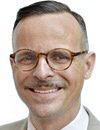
Dr. Andrew J. M. Irving: 'Ik onderzoek middeleeuwse religieuze materiële cultuur. Ik breng in kaart wat we kunnen leren over de aard van religie en geloof door het bestuderen van dingen, ruimten en praktijken; het vraagt wat de relatie is tussen het gemaakte / gebruikte religieuze object en zijn maker / gebruiker. Ik ben speciaal deskundig op het gebied van boeken, voorwerpen, ruimtes en praktijken van de middeleeuwse liturgie. Het gaat me om de materialiteit van het middeleeuwse religieuze boek - evangelieboeken, misboeken, gebedsboeken - en wat veranderingen in ontwerp en sporen van het gebruik van deze objecten kunnen vertellen over de gemeenschappen die ze hebben gebruikt. '
Associate Director
Dr. Mathilde van Dijk
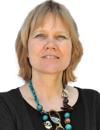
Dr. Mathilde van Dijk: 'Ik ben cultuurhistoricus met de Middeleeuwen als specialisatie, met name de geschiedenis van de laatmiddeleeuwse hervormingsbewegingen en gender. Erfgoed is een terugkerend thema in mijn werk, bijvoorbeeld in mijn project over de toe-eigening van de kerkvaders in de Moderne Devotie. Daarnaast bestudeer ik hoe laatmiddeleeuwse hervormingsbewegingen zoals de Moderne Devotie en het Humanisme als markers van hedendaagse Nederlandse cultuur en spiritualiteit gebruikt worden. Ook houd ik me bezig met de recycling van de Middeleeuwen in hedendaagse populaire cultuur, vooral in film en televisie.
Bekijk deze video met informatie over het Centrum voor Religie en Erfgoed en het onderzoek van Dr. Mathilde van Dijk.
Staf
Prof. dr. Todd H. Weir
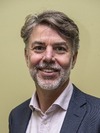
Prof. Dr. Todd H. Weir is Professor of History of Christianity and Modern Culture: ‘I am a cultural and intellectual historian of modern Germany and of the transnational history of religion and secularism. Before coming to Groningen in 2016, I taught history for nine years at Queen’s University Belfast. My research has focused on various aspects of the interaction of Christianity and secularism. I published a study on Secularism and Religion in Nineteenth Century Germany: The Rise of the Fourth Confession in 2014 for Cambridge University Press (Winner of the Jacques Barzun Prize for Cultural History of the American Philosophical Society). In 2023 I published Red Secularism: Socialism and Secularist Culture in Germany 1890 - 1933 and co-edited with Lieke Wijnia: The Bloomsbury Handbook of Religion and Heritage in Contemporary Europe I have an abiding interest in conversion and apologetics, which feature in my current major research project: Modern Worldviews and Culture Wars.
Fellows
Dr. Eelco Nagelsmit
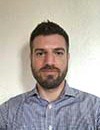
Eelco Nagelsmit (1982) is an historian of art and architecture and is affiliated as a fellow with the Centre for Religion and Heritage. His research focuses on the historical functions of art and architecture in their cultural, political and religious contexts, and is most concerned with the capacity of art to transform the beholder. His PhD dissertation (universities of Ghent and Leiden, 2014) approached the patronage of art and architecture in seventeenth-century Brussels from an anthropological perspective, considering the role of objects and buildings as “agents of change” in the Counter-Reformation. As a postdoctoral researcher at the University of Copenhagen he closely collaborated with church historians in an ERC-project about religious culture in France and Germany during the “long seventeenth century”. This project explored how early modern subjects negotiated the tension between religious withdrawal from the world, and engagement with it, by looking across different artistic media. In 2018 he received an NWO VENI-grant for his research project “Divine Denkraum: Early Modern Protestant Princes and Theologians Exchanging Thoughts through Things”. In this project he focused on courtly gift-exchange between princes and their theologian advisors as a means of politico-religious communication. In this context he co-created a virtual reconstruction of an eighteenth-century model of the Temple of Solomon from Germany. Having held postdoctoral and teaching positions at the Universities of Copenhagen, ETH Zurich, Groningen, and Leiden, he currently teaches art history at the Vrije Universiteit Amsterdam. He is a member of the editorial board of Virtus: Journal of Nobility Studies.
Project description
In the academic year 2024-2025 Eelco has been granted visiting fellowships by the KU Leuven Institute LECTIO and the Study and Documentation Centre Capuchins in the Low Countries, the Royal Netherlands Institute in Rome (KNIR), and he will be Scholar-in-residence at the Dutch University Institute for Art History in Florence (NIKI). During these stays, he will conduct research into the seventeenth-century use of citation of older works of art as “historical evidence”. His project is entitled “Exhibiting Evidentia in Franciscan Polemics between Italy and Flanders: Carolus of Arenberg and Gillis Backereel’s ‘Icones Antiquae’ (c. 1660s)” and focuses on the patronage and function of a series of paintings of Franciscan saints in landscapes, painted by the Flemish painter Gillis Backereel at the behest of the Capuchin monk Carolus van Arenberg. Once gracing the walls of the Brussels Capuchin church, and presently dispersed in various churches around Belgium (if not lost), their life-size saintly figures were copies after thirteenth- and fourteenth-century works of art from around Europe, especially Italy. What was the reason for harking back to such temporally and spatially remote models? The project sets out to understand this seventeenth-century “medieval revival”, by situating it in the context of monastic polemics across different media, and elucidating its function as a strategy for exhibiting evidentia, a classical concept understood in the early modern period as evidentness: clarity beyond doubt. By studying works of art, manuscripts and archival documents, the project aims to elucidate the role of these artworks and images in articulating Carolus’ learned position, in the context of its wider importance for the Capuchin mission and the Catholic Reformation at large, as well as for the history of knowledge. As such the project aims to contribute to current scholarly debates on the ways in which the production of plausibility and Evidenz (self-evidence: a – often visual – revelation of certainty without need of further legitimation) have evolved historically.
Dr. Lieke Wijnia
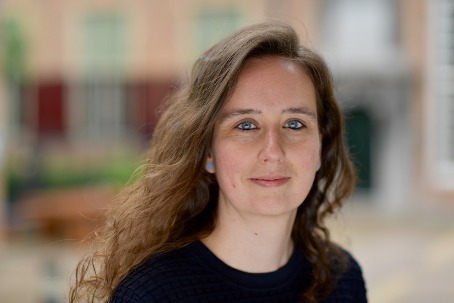
Lieke Wijnia (1985) is Head of Research & Collections at Stedelijk Museum Schiedam. She is affiliated as Fellow with the Centre for Religion and Heritage since 2018.
Her research explores contemporary artistic practices in relation to religion, secularization and heritagization. She has worked on topics such as the arts and pilgrimage, modernism and religion, and art and the postsecular. With a curatorial stipend from Het Cultuurfonds, she has recently researched the presence of religious modern and contemporary art in Dutch museum collections. She is currently writing up the findings of this research for publication.
She is the author of “Beyond the Return of Religion: Art and the Postsecular” (Brill, 2019) and “Resonating Sacralities. The Dynamics between the Arts and Religion in Postsecular Netherlands” (De Gruyter, 2022). She co-edited two books with dr. James Bielo: “The Bible and Global Tourism (Bloomsbury, 2021) and “Museums as Ritual Sites. Civilizing Rituals Reconsidered” (Routledge, 2024).
She curated two exhibitions at Museum Catharijneconvent, the national museum for Christian art and Heritage in the Netherlands: “Mary Magdalene” (2021) and “The Genesis of Science” (2024). She also edited the accompanying publications (Waanders Uitgevers). Currently she is still involved as Curator for the development of the museum’s new collection presentation.
Together with Prof. Todd Weir of the CRH, she organized the 2019 international conference “Religious Heritage in a Diverse Europe” in Groningen. She also co-edited the volume that resulted from this conference, “The Bloomsbury Handbook of Religion and Heritage in Contemporary Europe” (Bloomsbury, 2023).
Her PhD thesis “Making Sense through Music. Perceptions of the Sacred at Festival Musica Sacra Maastricht” (2016) won a Tilburg University Thesis Prize (2017). Her essays on the sacred in art museums was awarded the Golden Medal of the Teylers Theological Society (2018), her work in the spiritual in Piet Mondrian’s art was awarded the inaugural Jeffrey Rubinoff Sculpture Park Postdoctoral Award (2018). Her work on art and pilgrimage was generously funded by the Sormani Fonds (2019-2020). Furthermore, her research has been supported by Gladstone’s Library, Catharina van Tussenbroek Fonds, Rocky Mountain College, and the Faculty of Religion, Culture and Society at Groningen University.
She co-convenes the Visual Arts & Material Culture panel at the biennial conference of the International Society of Religion, Literature and Culture (ISRLC) and she is an editorial board member of the Netherlands Yearbook of History of Art (Brill).
Lieke regularly gives guest lectures at various universities, enjoys public speaking engagements and is a member of the expert panel on podcast “Scheppingsdrift” (EO/ NPO Klassiek) on the bible and the arts.
Dr. Maaike de Jong
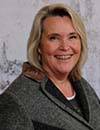
Maaike de Jong (1969) is a Lecturer Researcher in Governance at the Amsterdam University of Applied Sciences. She is also a Fellow at the Centre for Religion and Heritage (CRH), where she shares her knowledge of heritage, museums, and tourism. De Jong earned her Ph.D. from Utrecht University in 2014, focusing on cultural governance. She studied Religious Studies at the University of Amsterdam and European Leisure Studies at Tilburg University.
De Jong’s research supports sustainable heritage goals, particularly Sustainable Development Goal 11, which aims to create cities and communities that are safe, inclusive, and sustainable. Her work explores how heritage can help achieve these goals. She has written several publications, including “Implications for Managed Visitor Experiences at Muktinath Temple (Chumig Gyatsa) in Nepal,” “Native American Objects, Tourism, and Museums: A De-Reterritorialized View,” and “The Museum as Visitor Experience: Displaying Sacred Haitian Vodou Objects.”
Currently, De Jong works with scholars and other experts on research projects that support sustainable development in the fields of heritage, museums, and tourism. She is particularly focused on decolonizing museums, ensuring fair representation, and returning sensitive collections to their rightful communities. She concentrates on three key themes:
-
Collection Ethics and Responsibility: Researching how museums display, care for, and return sensitive collections, with a focus on decolonization. She collaborates with museums like the Museum of the Rockies, Quai Branly Museum, Tropenmuseum, and Néprajzi Múzeum.
-
Heritage as a Driver of Sustainable Development: Exploring how heritage sites like Veenhuizen and Frederiksoord can support sustainable communities.
-
Museums as Platforms for Sustainable Cities and Communities: Examining how museums like the Humboldt Forum, Museum of Boulder, and District Six Museum contribute to creating sustainable urban areas.
Through her projects, De Jong aims to start new conversations about heritage, museum collections, decolonization, and tourism. She also seeks to contribute to the Sustainable Development Goals, with a focus on building strong partnerships and fostering sustainable cities and communities.
Dr. Sabina Rosenbergova
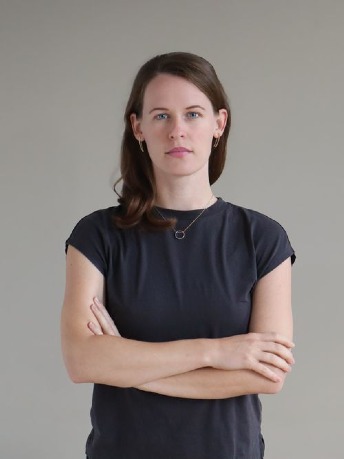
Sabina is an Assistant Professor of Cultural Heritage at the University of Groningen, serving the multi-disciplinary faculty of Campus Fryslan.
She is a laureate of the prestigious MSCA Postdoctoral Fellowship. Her project “Transformation of Female Religious Spaces and Objects into Modern Museum Contexts” combines art history, museum, and heritage studies with a gender lens to investigate how historical spaces and artifacts are transformed when integrated into modern cultural institutions. The Center for Religion and Heritage, within the Faculty of Religion, Culture, and Society hosts her research at the University of Groningen.
She earned her Ph.D. in Art History from Sapienza University of Rome and Masaryk University in Brno in 2023, with a thesis offering a reappraisal of 10th-century art and culture in Rome.
Sabina has a strong international research background, having contributed to projects across Italy, Czechia, France, and the USA. She was a researcher on the MSCA Horizon Project “Conques in the Global World,” a Pre-doc Fellow at the Max Planck Institute for Art History – Bibliotheca Hertziana in Rome, and a visiting scholar at CUNY in New York.
Paul Ariese
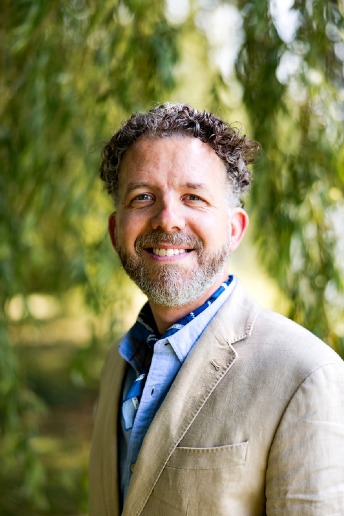
Paul Ariese (1975) is a fellow at the Center for Religion and Heritage, with which he works closely in the context of the Network Religious Heritage. Ariese is a senior lecturer in the international Master’s programme Applied Museum and Heritage Studies and the Bachelor’s programme Cultural Heritage at the Reinwardt Academy (Amsterdam University of the Arts), where he lectures on heritage and religion, among other subjects.
Currently Ariese is pursuing a PhD degree at the Amsterdam School for Heritage, Memory and Material Culture (University of Amsterdam). The topic of his research is the intertwining of religious and heritage practices at the synagogues of the Jewish Cultural Quarter in Amsterdam. The question is what religious meanings, sensations and experiences are evoked in people today by the Portuguese Synagogue (both a heritage site and place of worship) and the musealised space of the Great Synagogue. This empirical research explores how Sephardic and Ashkenazic source communities, heritage professionals and museum audiences interpret, shape and use these spaces. The case study provides insight into the interaction between religion and heritage, paving a path to reposition Jewish religious heritage in the increasingly secular and pluriform Dutch society.
Ariese has been involved in numerous projects for museums and heritage institutions all over the Netherlands, as well as museum projects and museum capacity building programmes in the Middle East, East Africa, and South(east) Asia. He is a graduate of the University of Leicester’s School of Museum Studies (MA with distinction) and also trained as an architectural and graphic designer.
The topic of his research is the intertwining of religious and heritage practices at the synagogues of the Jewish Cultural Quarter in Amsterdam.
Tharik Hussain
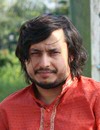
Tharik Hussain (1979) is affiliated as a fellow with the Centre for Religion and Heritage. He is an author, journalist, broadcaster and consultant specialising in Muslim heritage and culture. Tharik’s work often serves to decolonise authorised and popular religious and cultural histories and narratives by working closely with academic and grassroots institutions.
For example, he has created Britain’s first Muslim heritage trails ‘The Woking Trail’ and ‘The Muslim Cemetery Walk’; edited a special revival edition of the historic British Muslim journal, ‘The Islamic Review’; and helped to develop Muslim-Jewish heritage trails with the University of Oxford and JTrails. He has also producing award-winning radio on America’s earliest mosques and Muslim communities, written variously about the indigenous Muslim cultures of countries like Romania, Lithuania and Thailand, and is an author at Lonely Planet. Tharik is currently working on his book ‘Minarets in the Mountains; a Journey into Muslim Europe’, about following in the footsteps of Ottoman traveller Evliya Celebi in search of Europe’s indigenous Muslim culture.
Tharik has been named one of the UK's most inspiring British Bangladeshis and is an advisor to the Foundation for Jewish Heritage, the Institute of Islamic Art Thailand and a number of heritage projects around the world. He received an MA in Islamic Studies from the University of London, a BA(hons) in Media and Cultural Studies from Middlesex University and is a qualified Further Education Lecturer (PGCE FE) with almost two decades of teaching experience.
